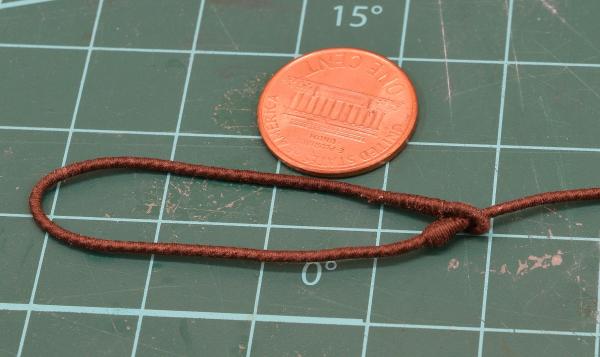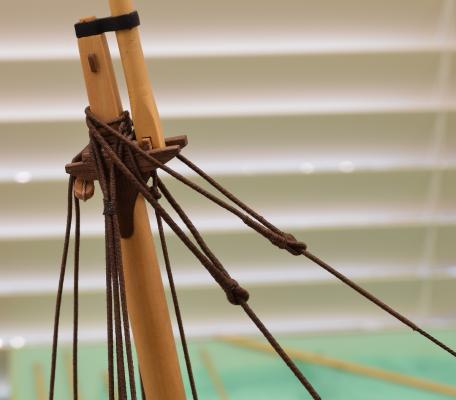-
Posts
2,213 -
Joined
-
Last visited
Content Type
Profiles
Forums
Gallery
Events
Posts posted by GuntherMT
-
-
I responded to your post on how to edit your subject in the other thread.
As for our meetings, they are pretty informal, sharing of tips, tricks, jigs, methods, or whatever other subject we want to discuss. We've done various small workshop type things, and we've also had mostly just show-and-tell and chat meetings. We'd always be open to covering a specific issue as well, and helping someone out with a problem. Since it's not a formal 'club' with dues and charters and such, we can do whatever we like.
It's also nice just to get together face to face with people who share our hobby once in a while.
-
Well, the bodies (beds, cross-slides, tables, et.c) of both, Sherline and Taig lathes are, to the best of my knowledge, made from extruded aluminium profiles. The bearing surfaces may well have steel parts screwed on, but my knowledge of these machines is not so intimate. I think though the Taig cross-feed is all aluminium. Both manufacturers seem to use brass gib-strips, so that you have a brass-aluminium or brass-steel friction.
The surface hardness of aluminium is less than that of cast-iron and steel, though the Sherline machines use an anodisation process that probably make them more scratch resistant. Therefore, the machines may not be as durable as machines made from cast-iron or steel.
Ok, perhaps my last post wasn't clear. The bed of the Sherline lathe is one solid piece of ferrous metal. The bearing surfaces are not screwed on, they are an integral machined part of the bed, and it is 100% not aluminum.
-
-
-
Good luck on your first build, and welcome to the site. The only thing left out of your title is the scale (as far as I know).
I see you are from Mesa. We have a small group that meets sort of monthly in the Phoenix area (different hosts each time). If you are interested in joining us, please shoot me a PM with your email address, and I'll add you to the list for the next meeting (which we actually haven't decided on yet with the holidays coming up).
- Corey and Dimitris71
-
 2
2
-
-
Looking great Erik.
On the knots, once you have them tight, hit them with your matte-medium and that will 'fix' them and keep them from coming undone. You can also use the white glue/water mix for this, but it's not as quick, but is easier to undo if you decide to make a change later. Some people use CA for this (I did in the earlier parts of my build), but there are enough down-sides that I stopped part way through. It discolors the rope, makes it stiff, is shiny, and if there is too much moisture, can form white crystals.
You'll end up having to paint over any CA knots with matte-medium to get rid of the shine too.
-
-
-
Mark I have been struggling with the same question for the stays - thank you for posting. I don't see any reference to a "Mouse" for my stays - I don't think my ship had mice on their stays. I'm not even clear what they are or their purpose... I'm particularly in the stays that run from the mainmast to the bowsprit (for the jibsails). Are these fully served?
Thx!
The 'mouse' is a wide spot in the stay that prevents the eye-splice from going past it, allowing it to be secured to the mast. No idea why they did it this way vs. splicing like an odd shroud, but I assume it had some advantages in strength or something.
Here is my forestay with the mouse completed off the model, showing how the stay feeds through the eye-splice and is secured by the mouse.
And here are the stays in place on the ship showing both stays and mouses (click for big).
No idea if your current project used the same method, but it seems to be pretty common to secure stays this way.
You can see a step-by-step of how I formed the mouse in the build log here: http://modelshipworld.com/index.php/topic/8085-armed-virginia-sloop-by-gunthermt-model-shipways-scale-148-complete/?p=342164
-
I have no idea why a modeler would do that, but then many people build stuff into the lower decks that will never again see the light of day either!
My understanding of worming is that it was done to fill in the ****-lines of the large ropes that were to be served, making them a more 'round' shape prior to the parceling and serving. I personally wouldn't do worming or parceling of a rope I was going to serve on a model, because I agree with you on the 'why?' on that.
If you have documentation that it was don on the Victory this way, then I've learned something new today. I'm still quite new to the hobby, so I have a great deal to learn, which is why I asked the question in the first place, as my understanding of worming was that it would never actually be visible.
Thanks for your response, take care, and keep on keeping on!
- shihawk, CaptainSteve, Mike Dowling and 1 other
-
 4
4
-
-
Congratulations on finishing, great looking ship.
-
-
I've never seen a stand like that, it works well, both visually and as a stand. Very nice.
-
-
It looks good, but would a stay ever be wormed without being then parceled and served? I thought worming was just the first step of the process?
- GLakie, CaptainSteve and shihawk
-
 3
3
-
I love getting good news late the discount ends Oct 23 and the date now is NOV 20 LOL
 would anyone know what the discount is not
would anyone know what the discount is notRonald
I'm sure that's just a typo. It's really easy to check. Go to Model Expo's site, enter the code, and click the check-mark. If it's expired, it will show "Expired" under the shopping cart. If it's not expired, it will show the code. Like this:
Seriously, just try stuff once in a while, takes only a few seconds to see if it works.
-
Thank you for all the kind words everyone. I'm on a bit of a break after completing the AVS, as I've decided that I was on a fairly certain road to a heart attack (or at least heart disease of some form) so I made a pretty major change in my life and joined a gym and hired a personal trainer, I believe I briefly mentioned this before. The current task is to transform my body into something less 'round' shaped, and in the progress see what happens with things like my blood pressure and cholesterol, etc.Unfortunately for the ship building, this is eating up about 3 hours per day, 6 days per week, so my time in the shop has been pretty severely cut into or eliminated completely on most days (I also work full time). I'm very slowly working on a small plastic non-ship side project that I want to complete before I start on the next ship, and at the current rate, this 'two or three day' model might be done by Thanksgiving.
 I've decided that the next project is going to be a ship with minimal rigging, from the Civil War, so many of you may be able to guess what it might be! Expect a build log to start somewhere near the end of November if all goes well.Thanks again for your support, encouragement and help during the AVS build!
I've decided that the next project is going to be a ship with minimal rigging, from the Civil War, so many of you may be able to guess what it might be! Expect a build log to start somewhere near the end of November if all goes well.Thanks again for your support, encouragement and help during the AVS build!
-
They look good Erik, and that's all that really matters, not how it gets done! At least in my opinion.
- dgbot, Dimitris71, Erik W and 3 others
-
 6
6
-
Hold the strip in one hand and do a little at a time, moving your hand along to keep the strip from twisting. Sand a little, hold it up to the hull, sand a little, hold it up, sand, hold, sand, hold, etc. until it lines up.
This is the method I used on the very thin walnut planking provided for the 2nd planking of the AVS, and it worked just fine. You just have to work on each plank carefully, and use a fine grit sandpaper (I used 220 grit mostly I believe) on a sanding block and work along the plank where you are supporting it. If you try to get too aggressive (either with pressure or with grit), then it will tear up the plank instead of sanding it. Let the sandpaper do the work, don't put pressure on it.
-
-
It's normal to have to remove laser burn for both the reason that you already mentioned (glue adhesion) and because the laser cut is a slight cone shape, also to square up the edge of the wood. This is true of all kits with laser cut parts, and it's better that the pieces be too tight, than too loose because they all need to be cleaned up and squared.
- michael mott, Eddie and Julie Mo
-
 3
3
-






Model Shipways Mayflower or Armed Virginia sloop
in Wood ship model kits
Posted
I just completed the Armed Virginia Sloop as my 2nd kit. I personally would say to pick the one that you like the most, because that will go a long ways towards keeping you motivated to finish. Personally I don't care for the style of the ships from the Mayflower period, so I don't know that I would ever finish one (it would need to be given to me first of all, because I'd certainly never buy one!).
The other things to consider is the various difficulty factors.
Hull shape - I think the bluff bows are more difficult to plank properly, but I've never done one.
Masts/rigging - the Mayflower is going to have more complicated rigging I believe.
Scale - 1:48 (1/4") scale vs. 1:77 (5/32") roughly, if my math is right.
My first kit was at 1:80 scale, and I found it somewhat difficult to work at that small scale, whereas 1/48 I found to be much easier to work with, and allows more detail that can be reasonably visible.
With the help of this forum, and some patience, I think you could do either one, but in the end, I still think the driving force should be "Which one do you like the most", as I think that will be better for your personal motivation.